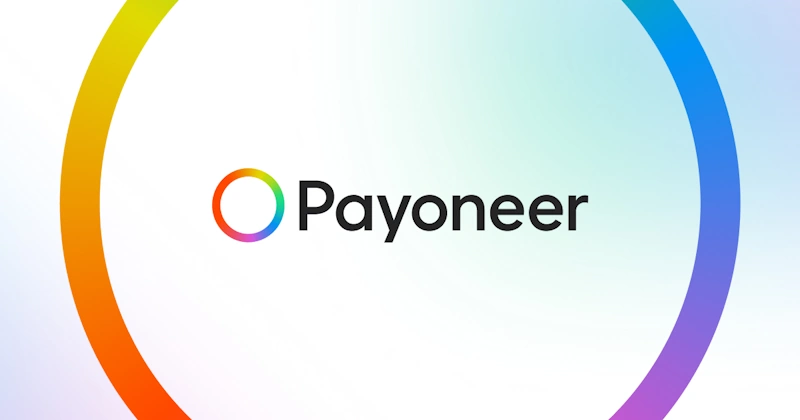Is Payoneer safe? Payoneer is not only safe, but it stands out as a cost-effective and versatile solution for receiving payments for your services on a global scale. Simplifying the payment process for your clients ensures swift transactions and allows you to operate across various marketplaces, networks, and platforms effortlessly.
Is Payoneer safe? By maintaining just one Payoneer account, you gain access to local bank account details, enabling you to receive payments in multiple currencies seamlessly, as if you were a local, through convenient bank transfers.
CREATE A PAYONEER ACCOUNT today and start enjoying the features of the platform.
Is Payoneer safe? Your account balances serve as a secure repository for these currencies until your business requires them, offering flexibility in managing your finances. Streamlining the payment experience, Payoneer ensures that receiving payments from global clients is hassle-free, regardless of their geographical location. Initiating a payment request with Payoneer is a straightforward process, requiring only a few clicks, and allows you to monitor the transaction at every stage.
Need more help? Watch a video on how Payoneer works right now.
Is Payoneer safe? Your clients will appreciate the user-friendly nature of Payoneer, where they can easily set up their accounts using a username and password. This opens up a world of opportunities, allowing them to monitor payment statuses, gain complete visibility on pending payment requests, and more through a single, intuitive dashboard.
Recognizing that some clients may have specific payment preferences, such as paying in a particular currency or requiring a local bank account, Payoneer extends your global reach by offering a network of local receiving accounts. This empowers you to work globally while receiving payments locally, often at minimal or no cost. Embrace the simplicity and flexibility of Payoneer to enhance your payment processes and cater to your clients’ diverse needs.
Is Payoneer Legit?
Is Payoneer safe? Yes, Payoneer is a legitimate and widely recognized payment platform. Established in 2005, Payoneer has become a trusted and reputable financial service provider with a global presence. The company is regulated and licensed to operate in various jurisdictions, adhering to stringent financial regulations.
Is Payoneer safe? Payoneer offers a secure and reliable platform for individuals, freelancers, businesses, and professionals to send and receive payments globally. Its services include facilitating cross-border transactions, providing local receiving accounts, and enabling users to manage multiple currencies efficiently.
Is Payoneer safe? The legitimacy of Payoneer is further validated by its partnerships with major companies and online marketplaces, making it a preferred choice for international freelancers and businesses. The platform employs robust security measures to protect user information and financial transactions, including encryption and compliance with industry standards. For users who access their accounts on mobile devices, using an iOS VPN adds an extra layer of protection, ensuring that sensitive financial data remains secure even on public or unsecured networks.
Is Payoneer safe? Payoneer has received positive reviews and testimonials from users worldwide, attesting to its reliability, ease of use, and customer support. As with any online financial platform, users must exercise standard precautions, such as safeguarding their account information and passwords.
Create your Payoneer account today! Click here to sign up
Payoneer vs. PayPal
Is Payoneer safe? Payoneer and PayPal are prominent payment platforms catering to individuals, freelancers, and businesses, facilitating transactions on a global scale. While they share similarities, they also have distinct features that set them apart. Here’s a comparison of Payoneer vs. PayPal, highlighting some of their significant features:
Global Reach
Payoneer: Known for its strong global presence, Payoneer allows users to send and receive payments in over 200 countries and supports more than 150 currencies.
Similarly, PayPal operates in numerous countries and accepts payments in various currencies, making it widely used for international transactions.
Transfer Fees
Payoneer: Payoneer generally offers competitive transfer fees; sometimes, transactions between accounts are fee-free.
PayPal: PayPal’s fees can vary depending on the type of transaction, the countries involved, and the funding source (credit card, bank account, or PayPal balance).
Currency Conversion
Payoneer: Payoneer enables users to hold balances in multiple currencies and convert funds at competitive rates within the platform.
While PayPal also supports multiple currencies, users may encounter less favorable conversion rates, and additional fees may apply for currency conversion.
Withdrawal Options
Payoneer: Users can withdraw funds from their Payoneer account to their local bank account or use the Payoneer Prepaid Mastercard for convenient access.
PayPal offers withdrawal options to a linked bank account, credit/debit card, or by requesting a physical check.
Receiving Payments
Payoneer: Payoneer is often utilized by freelancers and businesses to receive payments from clients, marketplaces, and networks worldwide.
PayPal: Widely accepted for online transactions, PayPal is commonly used for receiving payments on e-commerce platforms, through invoices, and for peer-to-peer transactions.
Integration with Marketplaces
Payoneer has robust integrations with various online marketplaces, making it convenient for users who receive payments from platforms like Upwork, Fiverr, etc.
PayPal is also widely integrated into many e-commerce websites, providing a seamless payment experience for buyers and sellers.
Customer Support
Payoneer: Users generally report positive experiences with Payoneer’s customer support, available through various channels, including email and live chat.
While PayPal has a substantial user base, some users have reported challenges with customer support responsiveness, particularly during account disputes.
How Does a Payoneer Payment Work?
Getting paid with Payoneer as a business or freelancer is a straightforward process involving setting up a Payoneer account and receiving payments through various channels. Here’s a step-by-step guide on how you can get paid with Payoneer:
Create a Payoneer Account
Start by visiting the Payoneer website and sign up for an account. Provide the necessary information, including your name, email address, business details, and other required information. CREATE A PAYONEER ACCOUNT TODAY!
Verification Process
Complete the account verification process. This typically involves submitting identification documents to comply with regulatory requirements and enhance the security of your account.
Receive Global Payment Details
Once your account is approved, Payoneer will provide you with global payment details. Depending on your location, this includes a virtual US bank account, European bank details, or other local receiving accounts. These details allow you to receive payments as if you had a local bank account in those regions.
Share Payment Details with Clients or Marketplaces:
Share the provided payment details with your clients, customers, or the online marketplaces you work with. This information allows them to transfer funds directly to your Payoneer account.
Payment Requests and Invoicing
Utilize Payoneer’s invoicing features to send professional invoices to your clients. Include your Payoneer account details on the invoices, making it easy for clients to make payments directly.
Integrate with Freelance Platforms or Marketplaces
If you work on freelance platforms or online marketplaces, check if they support Payoneer as a payment option. Many platforms integrate with Payoneer, allowing you to conveniently receive payments directly to your account.




